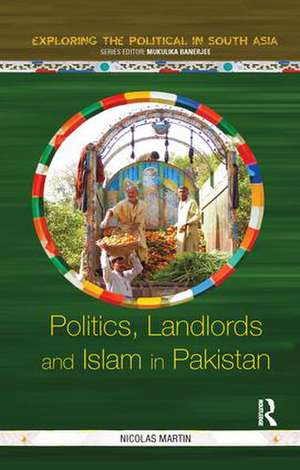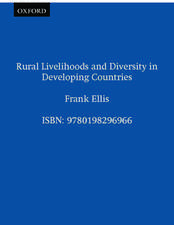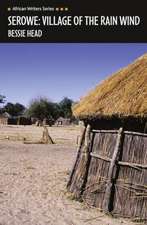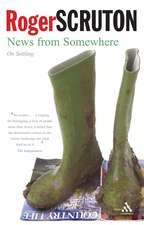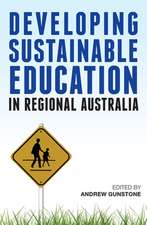Politics, Landlords and Islam in Pakistan: Exploring the Political in South Asia
Autor Nicolas Martinen Limba Engleză Paperback – 4 dec 2017
The volume will be of interest to scholars and researchers on Pakistan and South Asian politics, sociology and social anthropology, Islam, as also economics, development studies, and security studies.
| Toate formatele și edițiile | Preț | Express |
|---|---|---|
| Paperback (1) | 449.41 lei 6-8 săpt. | |
| Taylor & Francis – 4 dec 2017 | 449.41 lei 6-8 săpt. | |
| Hardback (1) | 1214.15 lei 6-8 săpt. | |
| Taylor & Francis – 16 oct 2015 | 1214.15 lei 6-8 săpt. |
Preț: 449.41 lei
Nou
Puncte Express: 674
Preț estimativ în valută:
85.99€ • 89.79$ • 71.01£
85.99€ • 89.79$ • 71.01£
Carte tipărită la comandă
Livrare economică 15-29 aprilie
Preluare comenzi: 021 569.72.76
Specificații
ISBN-13: 9780815392989
ISBN-10: 0815392982
Pagini: 208
Ilustrații: 1 Line drawings, black and white; 2 Halftones, black and white; 3 Illustrations, black and white
Dimensiuni: 138 x 216 x 11 mm
Greutate: 0.45 kg
Ediția:1
Editura: Taylor & Francis
Colecția Routledge India
Seria Exploring the Political in South Asia
Locul publicării:Oxford, United Kingdom
ISBN-10: 0815392982
Pagini: 208
Ilustrații: 1 Line drawings, black and white; 2 Halftones, black and white; 3 Illustrations, black and white
Dimensiuni: 138 x 216 x 11 mm
Greutate: 0.45 kg
Ediția:1
Editura: Taylor & Francis
Colecția Routledge India
Seria Exploring the Political in South Asia
Locul publicării:Oxford, United Kingdom
Public țintă
PostgraduateCuprins
Foreword. Acknowledgements. Introduction 1. Setting 2. Debt and Bondage 3. Electoral Politics and the Reproduction of Inequality 4. The Enemy of My Enemy is My Friend 5. Elections and Devolution 6. Islam, Selflessness and Prosperity 7. Conclusion. Bibliography. Index
Recenzii
Nicolas Martin has written by far the best account I have yet read of the Hobbesian nature of power and violence in rural Punjab. . . . He also reflects deeply on the nature of Islamist resistance to the state in Pakistan. This is anthropology of the very highest order. A must-read book.—Stuart Corbridge, London School of Economics
Nicolas Martin’s admirably researched and well-written book is a highly important contribution to our understanding of political change and continuity in the Punjab countryside.—Anatol Lieven, Georgetown University in Qatar
Not many studies inform us on what is happening in the countryside of Pakistan. Nicolas Martin does . . . Having read his excellent work one understands why the land-poor and landless try and leave for the cities in search of a better life. — Jan Breman, University of Amsterdam, The Netherlands.
The rich local detail of this work set in the Punjab puts it beyond comparison with recent writings on Pakistan’s political economy. The book’s wonderfully descriptive material is clearly and eloquently set out and the insights from this analysis throw an altogether new light on Pakistan’s overall politics and economics. — Philip K. Oldenburg, Columbia University
Nicolas Martin’s admirably researched and well-written book is a highly important contribution to our understanding of political change and continuity in the Punjab countryside.—Anatol Lieven, Georgetown University in Qatar
Not many studies inform us on what is happening in the countryside of Pakistan. Nicolas Martin does . . . Having read his excellent work one understands why the land-poor and landless try and leave for the cities in search of a better life. — Jan Breman, University of Amsterdam, The Netherlands.
The rich local detail of this work set in the Punjab puts it beyond comparison with recent writings on Pakistan’s political economy. The book’s wonderfully descriptive material is clearly and eloquently set out and the insights from this analysis throw an altogether new light on Pakistan’s overall politics and economics. — Philip K. Oldenburg, Columbia University
Descriere
Politics, Landlords and Islam in Pakistan explores the linkages between politics, religion, class, and caste in politics in rural Pakistan. It documents how landlords continue to wield arbitrary and despotic power over much of Pakistan’s rural population in the 21st century, and how participatory democracy has been subverted and has largely benefitted rural elites.
